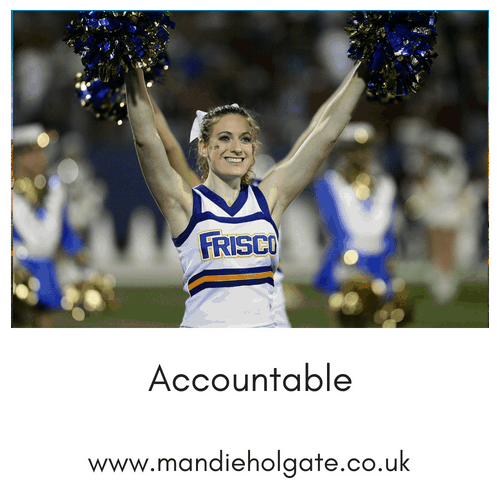When I first thought about turning weakness into strength, I thought about the words people use when they realize that their weaknesses are destroying their happiness and success. Then, I thought about new clients and unwilling team members who are dragged along on a team day with me thinking “What kind of hell is this?” They firmly believe that life/and or work are just like that and it’s circumstances that can’t be changed; “Out of your control”. Through the magic of coaching, I’ve learned that our weaknesses hide what we really need to learn. So what better way to turning weakness into strength is to you get what you want in life. Using case studies and techniques that I know have helped. Clients who said things like:
- Why do I never learn?
- My shyness is holding me back!
- I never finish my to do list!
- Why do I spend too much time on social media?
- Why am I such a people please?
- Why don’t I just go for it?
- Why am I so scared all the time?
- Why do I never stand up for myself?
- Why does what I want never feel important enough to get on with?
This is your chance to turning weakness into strength of yours, write it down and coach yourself out of weakness to gain a strength.
1. Find Your Weakness

To begin, never stop yourself from
finding your weaknesses and really experiencing them. If you are a client of mine, you’d know I make my clients really feel the pain of the weakness that they feel is standing in the way of their happiness, goals, success and any other dream they’d like to be a reality. As mean as it sounds to make your clients suffer, it’s an imperative part of the process of turning weakness into strength that ensures you see results. Therefore, start by feeling the pain from your failures and that voice that tells you it will never happen and you aren’t good enough. Don’t hide from the negative. Don’t hide from the bad stuff in your life. This part of a coaching session can take an hour so that a client properly gets to brain dump every single thought in front of us. So, don’t shy away from any thought, just write it down.
2. Dig Deeper
The first level of pain is not usually enough to turning weakness into strength. Usually we talk about the shallower level of pain because like a beast in the corner of the room we are keen to not acknowledge it and accept that life as we know it is about to end. Working with a coach ensures you don’t wallow there, you find the true pain and own it but don’t experience it again and again and again. Here is a couple of example of the first 2 steps so you can see them in action. I'd like to share a story of my coaching client, Tom, not his real name. Tom told me how he was not that clever, and everyone always overlooked him at work and at home. Until recently, it had suited his life but now with plans to further his career and travel he wanted a decent career to pay for it all. He told me he looked around the office and everyone had had a promotion except him. Someone who’d started 1 year ago was already telling him what to do! It grated, it infuriated him and he felt invisible and unappreciated. In his session, Tom put it down to not being that clever. He explored what that had meant to him all his life and how this weakness had impacted on him and his success and obviously it hurt, but that was only step 1, in step 2 I asked him “Telling me all this, how does it feel now?" He said he felt foolish and like he had wasted years. It was like watching someone get sucker punched in the stomach. He stopped talking and half smiled and half grimaced and I could see he’s eyes had gone glassy. In a normal conversation, you would reach across the table and say something reassuring, wouldn’t you? As hard as that is as a coach, that’s not your job to have any opinion good or bad. The non-judgmental nature of coaching helps to ensure someone feels safe to say anything.((International Coaching News:
The Importance of Being Non-Judgemental in a Coaching Relationship)) And that’s what Tom did. We explored the true issue that made him feel stupid, and we looked at what evidence he had to prove that he was stupid, obviously there was none. And next…
3. Explore Your Beliefs
Step 3 is where you explore that person’s beliefs. It's hard to accept that what we believe to be fact is often only opinion and a viewpoint. By breaking down a perceived fact into an opinion, then that person can learn that there could potentially be a new way of thinking, reacting and acting to get better results. For Tom, we did this by looking at what proof he had that he was stupid. I tend to joke with my clients and so I jested “So Tom, how does someone so stupid get to work for X, did they feel sorry for you?” As mean as that question sounds, it’s said in a jokey way and Tom went from bordering on breaking down to laughing. It’s not easy being confronted with a new truth. Tom went on to tell me about how in actual fact, he had been headhunted. He had been shocked when it had happened. He hadn’t been in the workplace for long and was not expecting it. This brought evidence to the front of his mind that he didn’t even have any proof that could back it up that he was stupid!

If you are looking to get rid of weaknesses in your life, and start turning weakness into strength, look for the evidence that in every aspect of your life that you respond/act/think in the way that you think is your weakness.((Inc.:
How the Most Effective Leaders Turn Weaknesses Into Strengths)) However big your weakness, there will be areas of your life where that weakness doesn’t exist. Coaching can go in many different directions according to what comes up, so here we will explore some strategies that may help you move forward and address your weaknesses. Ideal for when you get stuck! A great strategy is to look for that weakness and find out where it doesn’t exist. Then you can ask questions to understand how it can be so different in this area of your life to that one. I’ve been lucky enough to be working with an amazing team of people for 3 years now and as an organisation they felt they were absolutely rubbish at communication. It came up time and time again:
- We get far too many emails - if you answered them all you’d never get any work done.
- No one can ever do anything around here without a meeting, sub meeting and half a dozen long documents being copied around the place for days.
- I’m not even in that department and I’m constantly dragged into discussions and meetings.
- I could finish work at a decent hour if I didn’t have so many pointless emals to wade through.
- Everyone is so worried about making a decision you get copied in on everything!
Allowing everyone in a team (even if that’s 220 team members in one big 2 hour coaching session!) to rant and share their views is important, you need a few ground rules:
- No judgement on anyone’s view.
- No view is wrong.
- No idea is wrong.
- No such thing as a silly question.
- And as I like to say like Vegas – what happens in this room, stays in this room – with less cocktails, dancing girls and one armed bandits – obviously!
(These rules apply to coaching yourself too!) Once everyone was allowed to go through step 1 and get into step 2. We started to see for this large team that in actual fact, their ability to be so honest had helped them be the country’s leading organization because their customers were always at the forefront of their mind. Someone flippantly had shouted out (you can hide in a crowd of 220!) “Shame they don’t treat the staff as well as the customers!” Bingo! This flippant comment led to us exploring the fact that their biggest weakness was actually their strength. We looked at what enabled them to be leaders in customer communications and wrote it all down. Looking at where they excelled enabled them to return to their weaknesses and understand what strategies and tools, they already knew that could help them change and achieve more.
4. Explore Lots of Possibilities
Never scrimp on this step of turning weakness into strength. People fail at coaching themselves and others when they try to race this part of the process. Our natural instinct as human is to jump to the solution. 1 + 1 =…. you’ve already answered it haven’t you? To really create solutions, you need to create a long list of possibilities. And in my experience, it’s usually a lot simpler than you realize. Let’s be honest, if life feels tough and you feel like your weaknesses are holding you back and have been for years, then it stands to reason that you are going to assume it’s going to be tough to change?
Overthinking is a big thing that stands in the way of finding solutions. So, don’t over think, write every idea (however silly or pointless down.)
5. Examine Your Weakness
Let’s get personal, I was told growing up that I was too sensitive. It was only through my own personal development that my mindset to this changed. So, look around you. Do you really have a weakness or is it a strength that others don’t like, appreciate or feel threatened by? I’ve always been sensitive and my family would say “Oh, Mandie, you take things so personally.” I’ve learnt (not until I was in my late 20’s!) that this was a good thing not a bad. My ability to feel what other people are experiencing means I am far more emphatic than most people and I’ve learned to hone my sensitivity to a new level, which means I can pick up on micro expressions and really help people on a level that most miss.((PaulEkmanGroup:
What are micro expressions?)) My ability to be good at my job as a coach is
because I’m very sensitive. I am turning weakness into strength. Ask yourself if this is a weakness or a strength hiding in plain site?
6. Find Your Voice
Another client of mine is Kate, not her real name. Kate's case is a good example of turning weakness into strength. Kate worked for a very large organization and was by no means senior. We had a team day with over 50 members of the company. The senior staff had invited employees like Kate so that they could experience strategy sessions and look forward in their career. At the time, Kate described herself as painfully shy. She felt it would impact on her career as it had her whole life. Through the coaching process, Kate found her voice. Laying down the ground rules meant she couldn’t be wrong. We fear speaking up or acting when we fear the outcome. If you think you’re shy and understand what that means to your life and success, you will do everything to stay safe, won’t you? Kate sat at the back listening and saying nothing. As the session went on, more and more ideas and weaknesses were added to our list of things to explore in our day. The senior staff weren’t breaking down their barriers to honesty – I felt strongly like they were more interested in proving they were right rather than in learning how to achieve more, and overcome their personal and professional weaknesses. Kate stopped that with one sentence. Kate asked “If that’s the case, why have you said that you feel you are expected to work at the weekends? Surely if this was working, we would all have guilt free weekends?” Where she gained the strength to speak up, no one seemed to know; but with that question, everyone became more honest. She started turning weakness into strength. Afterwards, Kate said she realized she just couldn’t tolerate everyone not dealing with the real issues. And in that one question, the whole day changed. Find what truly motivates you and however big your fear you will override it. Learn more about what really motivates you in this article:
How to Get Motivated Every Day When You Wake Up Being the “Shy one” worked in Kate’s favor because no one would expect her to speak up. So when she did, everyone listened!

Don’t be so quick to assume what you see as a weakness. It is actually a hidden strength you’ve just not flexed the muscles on! As you’ve seen with Kate and Tom, the coaching process helped them believe in themselves and start to learn to trust that they were enough. So, before you look to change, ask yourself how confident you feel? Check your
confidence level here. If you don’t believe you can start turning weakness into strength, how likely are you to achieve?
The more I coach, the more I think social media should come with a health warning. -- Mandie Holgate
Too many people go online and assume that what they see is the full story. We hunt out approval and likes when we should be looking to find that in ourselves. If you feel you lack something and have weaknesses, look to how social media, the press or even your choice of box sets make you feel:
- Do they make you feel empowered and ready for anything?
- Do they make you feel inadequate?
- Do you compare yourself to others and think I’m not like that! Am I not good enough?
Trying to be someone else is never going to work in turning weakness into strength. you need to admit that "This is me". If you can’t that’s your first weakness to tackle.
7. Stop Procrastinating
The last thing I do with every client is look for the excuses; the reasons why it won’t happen, the obstacles that they’ve not considered. If you know you are someone that can create a billion excuses why it didn’t’ happen and none of it was your fault, work on your accountatbility:
- Who will you tell you are taking this action too?
- Who will you report back to? Imaginary bosses are great – ask yourself “If I had a boss, would they be happy with my progress?”

Final Thoughts
Life is busier than ever; so again, we can blame the kids, partner, boss dog, deadliness, traffic, even illness on why we didn’t take action on our weaknesses. But if you go back to the start of the coaching and really feel your pain, you will do everything in your power to stay away from it:
- Do you need to block time out in your diary?
- Do you need to write your goal on your bedroom wall?
- Do you need to set an alarm?
- Do you need an app?
- What would ensure you stay focused on the end result you want moving forward?
And remember, hidden in every weakness is a strength, as Christine Szymanksi said,
“Acceptance of your weaknesses along your life path you will stumble upon your strengths."
I would say the biggest weakness that any of us must face first is our fear to get started. If you take that leap of faith and follow these steps, there’s no reason why you can’t turn your weaknesses into true power that leads to the results in life you want. What have you got to lose?
More Tips on Fighting Fears

 To begin, never stop yourself from finding your weaknesses and really experiencing them. If you are a client of mine, you’d know I make my clients really feel the pain of the weakness that they feel is standing in the way of their happiness, goals, success and any other dream they’d like to be a reality. As mean as it sounds to make your clients suffer, it’s an imperative part of the process of turning weakness into strength that ensures you see results. Therefore, start by feeling the pain from your failures and that voice that tells you it will never happen and you aren’t good enough. Don’t hide from the negative. Don’t hide from the bad stuff in your life. This part of a coaching session can take an hour so that a client properly gets to brain dump every single thought in front of us. So, don’t shy away from any thought, just write it down.
To begin, never stop yourself from finding your weaknesses and really experiencing them. If you are a client of mine, you’d know I make my clients really feel the pain of the weakness that they feel is standing in the way of their happiness, goals, success and any other dream they’d like to be a reality. As mean as it sounds to make your clients suffer, it’s an imperative part of the process of turning weakness into strength that ensures you see results. Therefore, start by feeling the pain from your failures and that voice that tells you it will never happen and you aren’t good enough. Don’t hide from the negative. Don’t hide from the bad stuff in your life. This part of a coaching session can take an hour so that a client properly gets to brain dump every single thought in front of us. So, don’t shy away from any thought, just write it down.
 If you are looking to get rid of weaknesses in your life, and start turning weakness into strength, look for the evidence that in every aspect of your life that you respond/act/think in the way that you think is your weakness.((Inc.: How the Most Effective Leaders Turn Weaknesses Into Strengths)) However big your weakness, there will be areas of your life where that weakness doesn’t exist. Coaching can go in many different directions according to what comes up, so here we will explore some strategies that may help you move forward and address your weaknesses. Ideal for when you get stuck! A great strategy is to look for that weakness and find out where it doesn’t exist. Then you can ask questions to understand how it can be so different in this area of your life to that one. I’ve been lucky enough to be working with an amazing team of people for 3 years now and as an organisation they felt they were absolutely rubbish at communication. It came up time and time again:
If you are looking to get rid of weaknesses in your life, and start turning weakness into strength, look for the evidence that in every aspect of your life that you respond/act/think in the way that you think is your weakness.((Inc.: How the Most Effective Leaders Turn Weaknesses Into Strengths)) However big your weakness, there will be areas of your life where that weakness doesn’t exist. Coaching can go in many different directions according to what comes up, so here we will explore some strategies that may help you move forward and address your weaknesses. Ideal for when you get stuck! A great strategy is to look for that weakness and find out where it doesn’t exist. Then you can ask questions to understand how it can be so different in this area of your life to that one. I’ve been lucky enough to be working with an amazing team of people for 3 years now and as an organisation they felt they were absolutely rubbish at communication. It came up time and time again:
 Don’t be so quick to assume what you see as a weakness. It is actually a hidden strength you’ve just not flexed the muscles on! As you’ve seen with Kate and Tom, the coaching process helped them believe in themselves and start to learn to trust that they were enough. So, before you look to change, ask yourself how confident you feel? Check your confidence level here. If you don’t believe you can start turning weakness into strength, how likely are you to achieve?
Don’t be so quick to assume what you see as a weakness. It is actually a hidden strength you’ve just not flexed the muscles on! As you’ve seen with Kate and Tom, the coaching process helped them believe in themselves and start to learn to trust that they were enough. So, before you look to change, ask yourself how confident you feel? Check your confidence level here. If you don’t believe you can start turning weakness into strength, how likely are you to achieve?

No comments:
Post a Comment